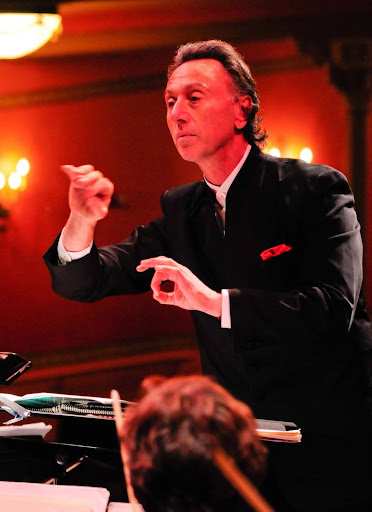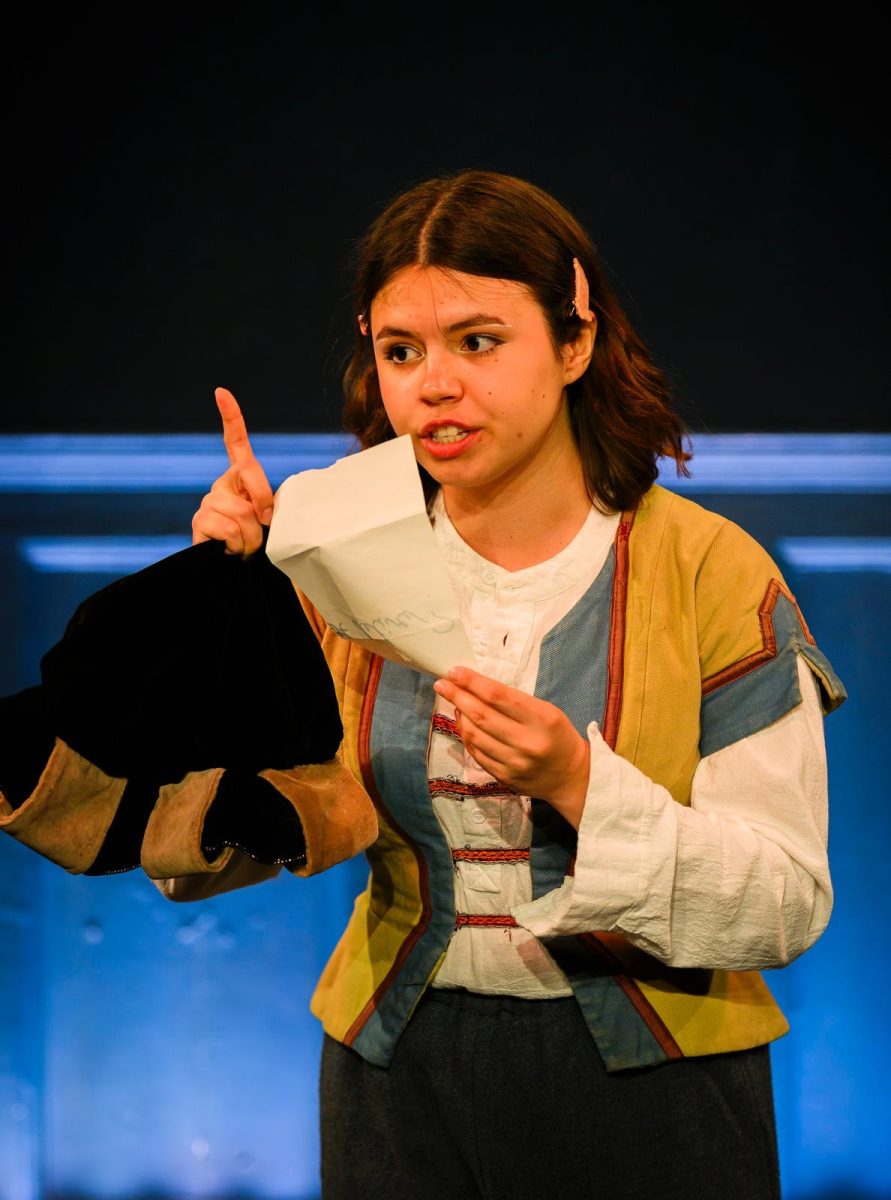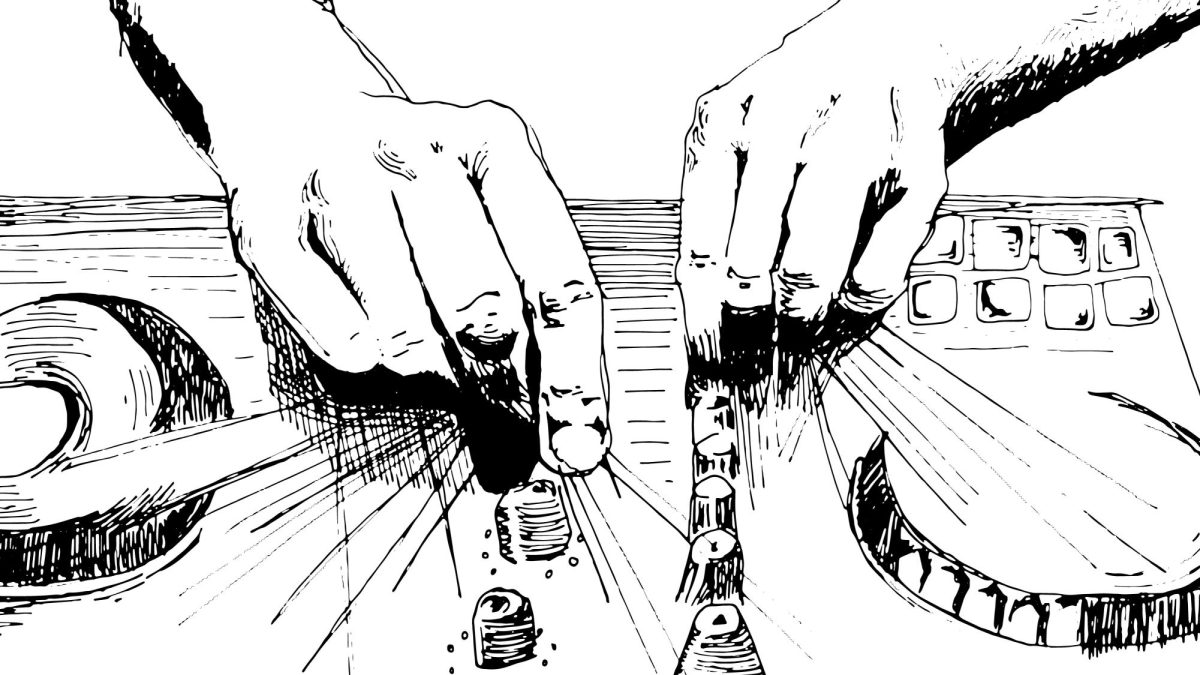
“I’d like to say that I’m a cellist who conducts,” Ronald Feldman said of his 35-year directorship with the Berkshire Symphony, which is now nearing its end. Ahead of his final performance in Chapin Hall as the symphony’s conductor, Feldman sat down with the Record to reflect on his career. Friday’s show will feature a classic repertoire after recent contemporary pieces, with a performance of Johannes Brahms’ Piano Concerto No. 2 and Symphony No. 2.
Feldman — who is an artist in residence in orchestral and instrumental activities and a lecturer in music at the College in addition to his role with the symphony — began conducting the Berkshire Symphony in 1989 while he was still a part of the Boston Symphony Orchestra (BSO), joining the College full time in 2001. While his primary instrument is the cello, Feldman’s music career began with playing the violin at 4 years old. He was so displeased with the instrument and his teacher, who was legendary violinist Jascha Heifetz’s page turner, that he decided to quit the instrument, standing his ground even when his father offered to pay him a dollar per week if he continued.
At age 10, Feldman started to play the cello at his elementary school. His parents then enrolled him in lessons with a private tutor Joseph Emonts, a Belgian cellist based in Bay Shore, N.Y. “Of all the teachers that I had in my formative years as a cellist, he stood out the most,” Feldman said. “He had long white hair. He was incredibly handsome. The environment for the lessons was magical — oriental rugs, very gentle, soft lighting, he had a silk spread on his grand piano, and he had all his bows lined up on that piano.”
“He would play the cello, and I would play the cello,” Feldman continued. “We would be sort of facing each other. It gave me this feeling that what I was doing was the right thing to do.”
Feldman detailed how Emonts used to smoke while playing cello, holding a cigarette between two fingers on his bow hand, with smoke wafting up towards the lamp as he played. “[Emonts] informed my life in many ways,” he reminisced.
After studying with Emonts, Feldman auditioned for the Juilliard Preparatory Division and began to study under cellist Claus Adam. Despite the long commute from his home in Long Island to New York City, he was committed to studying at Juilliard for his musical education.
At age 18, Feldman enrolled at Boston University to pursue a bachelor of music in cello performance. With an opening in the BSO, Feldman was advised by a cellist in the orchestra to audition for it even though he was only a year into college, as it would be a good experience. With the zeal of a true musician, Feldman would practice upwards of seven or eight hours a day in preparation for his audition. But the long hours were worth his while — Feldman got the opening.
Feldman explained that most conductors start as musicians, which exposes them to the practice of conducting. “For me, when I was playing in the Boston Symphony, I would listen to all of the different responses that the conductors would have to what was going on in the orchestra,” he said. “I would think to myself, ‘Why didn’t the conductor say that this particular instrument is too loud or that the second oboe player is playing sharp?’”
“I think that’s what pushed me,” he continued. “Because I was able to hear the things that I felt were being neglected. If I learned how to conduct, I could address those things.” This frustration led Feldman to conduct a couple of community orchestras and, eventually, the New England Philharmonic, while still working as a cellist at the BSO.
A fellow performer at the BSO, bassoonist Sherman Walt, directed Feldman toward the Berkshires as the Berkshire Symphony’s previous conductor, Julius Hegyi, was leaving the position.
Over the last 30 years, Feldman has been essential to building the College’s music department into what it is today. He worked with the former chair of the department Professor of Music Emeritus David Kechley to draw in freelance artists to both teach the students and play as principals for the orchestra, simultaneously improving the level of the symphony and attracting students to the ensemble. “We realized that with the quality of the players that we had in the orchestra [and] the quality of the artist associates,” Feldman said. “There was no repertoire that we couldn’t play.”
Reminiscing, he recalled the symphony’s 2013 performance of Igor Stravinsky’s Rite of Spring, in which the audience almost recreated the original riots that accompanied the piece’s debut.
“There’s so much value gained from participating in ensembles,” Feldman said. “Williams supports an extraordinary education, but what students gain from ensembles just cannot be overlooked. Learning to work with people productively is so important, and that’s what you learn when you’re playing an ensemble.”
As this chapter in Feldman’s career closes, he said that he is focused on new pursuits. “My wife and I have our first grandchild, Elliot,” he said. “It’s just time to relax. I have a couple of chamber groups that I play with, and I’ll be working outside — we have a property that needs a lot of care. I’m looking forward to doing all that.”







